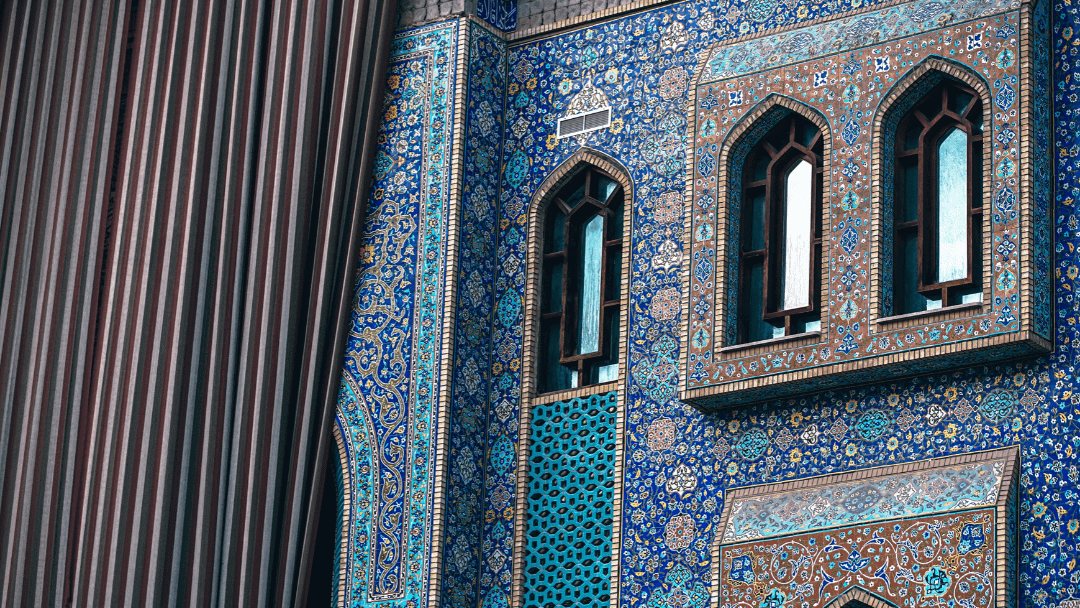In this era of globalization, every sphere of social life is inextricably linked to finance and profit. Whenever a commercial bank makes a loan, that money is created. The money loaned out is not money the bank already had in their accounts. Thus private corporations called banks have been given the privilege of money creation. This money creation is therefore the very tool of bankers to maximize collective indebtedness. They do this in order to earn profit on loans via interest. The more indebted a society is, the more the bankers are cashing in. But is doing what’s good for the bankers good for wider society too?
The answer is a resounding no. As we shall see, banking interests sow the seeds of deep, systematic, unbridgeable wealth inequality in society. Indeed, according to the neoclassical theory of abstinence, the reason we consume goods and services is to satisfy our human needs. For the ordinary worker, abstaining from consumption in order to save money contains an element of risk, as it potentially involves not getting what you actually need. The case is different for the capitalist class who put their wealth in savings. They know that they will be handsomely rewarded through interest. The banking class also know that they have a near-monopoly over monetary creation and are thus able to earn profit through interest on the money they invent out of thin air. Thus the banking class don’t bear the slightest risk in order to build further capital.
The natural tendency of such a system is therefore to concentrate capital in the hands of the banking class. Not only can the rich create money and charge others for using it, that extra interest has to be earned in the real economy by ordinary people. In the words of Jesus, the one who has much is given more, and the one who has little, even that is taken away from him.
In such circumstances, people need a lighthouse capable of illuminating them; an economic system in which society is no longer reduced to a rat race where the individual desire of the few is able to offset the well-being of the many. This economic system will have to strike at the root of the capitalist hydra. This alternative economic system would recognize that its only legitimate purpose is to improve the quality of life for all citizens, matching individual endeavor with collective well-being. This economic system will have to satisfy the requirements of humanity, starting with the demands of economic justice. It will have to reshuffle the cards in our society, freeing us from the iron cage of Capitalism.

‘Heads We Win, Tails You Lose’
Our economies are based on the triumvirate of debt-consumption-work. Work no longer precedes consumption. Through credit cards and loans, our system has made us consumers unable to wait, relying on bankers to satisfy our consumerist impulses. Consumption is certainly the driving force, the foot on the pedal, but debt is what makes the engine run.
One might think that no one is wronged under this arrangement. However, all that the banking sector has done, in its ingenuity, is to adopt a conservative investment approach by favouring less risky clients. At the time of granting a loan, the banking world classifies individuals according to their solvency, in other words, their ability to repay the debts incurred. Today, if someone enjoys a comfortable economic situation, they are more likely to get a loan. On the other hand, the poorer you are, the more difficulty you will have in repaying a debt. Bankers will therefore disadvantage poorer people by charging them higher interest rates. This naturally makes their situation even more precarious. As far as the bankers are concerned, it is perfectly justified to cash in when the risk of defaulting is higher. This means that the banking system is fundamentally exploiting the poorest in our society, who are paying back both the original loans and higher interest rates. Remember, the banks don’t have this money to begin with. They don’t lend money from depositors’ accounts, instead they literally invent the money they ‘lend.’ What we call ‘lending’ is really just selling money at the price of interest.
As long as the system is holding up, the instigators of this system take full advantage of the financial gains. But sometimes recessions hit, usually because private debt levels go so high that no-one can repay anything, and no-one can afford to buy anything. In such times of crisis, states and international financial institutions are forced to intervene and stoke the fires of a dying system. Governments are then forced to prevent any risk of crisis at the international level by introducing the idea of a ‘lender of last resort’. This is an institution such as a central bank that can create money and pass it on to commercial banks in trouble. Their rescue work is done at the price of inflation, diluting the purchasing power of the working class and pensioners. States can also borrow to inject cash back into the system, leaving themselves in rising debt.
The IMF can play a similar role. Its job is to intervene in the international credit market in order to avoid countries going bankrupt and being unable to repay their debts. Such defaulting would naturally upset the entire international financial system. While this practice may have prevented the onset of a destabilizing financial crisis, it in turn heightened the systemic instability of capitalism by giving financial actors a sense of impunity. They knew that whatever they did, there would always be someone to bail them out, adding to public debt. But a rising public debt always corresponds to future tax increases. After the financial crisis of 2008, public authorities saved the banks, leaving ordinary taxpayers picking up the pieces. In other words, profits were privatized, and losses were taken into public ownership. It is evident that the financial world works like a parasite which goes on sucking the blood of the poorest segments of society.
It is high time for the state to regain control over the monetary creation that has been unfairly monopolized by bankers. To put a stop to the sale of our common future is of utmost importance. Indeed, to escape from this vicious cycle, there should be a law stipulating that no-one can be compensated for the opportunity cost of lending money. Banks use this excuse of ‘opportunity cost’ to justify charging interest. The idea is that the money loaned could have been used by the banks to make money through productive investment. For this potential opportunity loss of future profits, they charge interest.
This, however, is fraudulent. Firstly, the banks never had the money in the first place — they create it when they make the loan. Secondly, they do not know if such an investment would have been profitable. Finally, time is not a raw material like others, and it cannot be considered a marketable commodity to be sold by banks. Like the air one breathes, time is a common good par excellence. It cannot be monopolized by anyone.
On the basis of this flimsy excuse, the system of interest is set in motion. But interest is a way of guaranteeing profit. The borrower always pays the interest, and usually pays the principal too. If they don’t, the debt is secured against collateral, and the bank takes your house. Either way, the banks always win, inequality always deepens, and the real economy stagnates.
This cannot go on. Debt must be removed from the heart of our economy, and putting money to work must be placed in its stead. How to do this? Religions have not been shy in giving answers. Originally, the Abrahamic religions prescribed ethics in trade to protect individuals in difficulty. Taking bank interest was thus formally prohibited. However, men gradually rid themselves of these restrictions, ultimately “emancipating” themselves from it completely, in a bid to enslave others through debt.

Zakat vs. Interest
We need a change in our mentality to rid ourselves from the cycle of this chaos. This requires academics and political leaders to wake up to the danger that lies before us. We must dare to question the banking logic that is eroding the fabric of our society.
To boost the economy and stimulate the velocity of circulation of money, banking logic must be replaced by a new way of thinking. In this brave new world, hoarding an excessive amount of money without investing it must be penalised. Naturally, what counts as excessive will be what is beyond an agreed threshold that allows for the fulfillment of ordinary human needs. Indeed, on closer scrutiny, one realises that this is in fact a similar principle to the operation of interest, only acting in reverse. It is, in a way, a negative interest rate. If you hoard and don’t invest back into society — you get charged. From economists like Thomas Piketty to politicians like Elizabeth Warren, news is spreading that this is indeed, the only way out of our current mess. It’s called a marginal wealth tax.
Against all odds and precisely to combat all forms of exploitation, a marginal wealth tax was proposed by Islam about 1,400 years ago. It bears the name of ‘zakat.’ The money raised is redistributed to to those in need. Such a tax, according to Islam, is not to be used for sovereign expenses, funds for which would be raised through other taxation schemes.
Zakat is one of the five pillars of Islam. It was historically levied at 2.5% on disposable assets above a certain threshold, as long as they have remained in the hands of their owners for more than a year. Much has been said about the rate or percentage of this ‘tax’, but it remains flexible and should be determined according to the state of the economy in a particular country.
If we take a closer look, Zakat represents a negative interest rate of 2.5%, thereby dissuading hoarding and encouraging investment in the real economy. While interest pays for the capitalist’s idleness, Zakat works as an incentive to keep excess wealth at a minimum; to reinvest rather than hoard; to turn the wheel of economic progress rather than stagnate.
And what happens when we look at the effects of Zakat as compared to interest, over time? In the Zakat model, when one’s wealth continually grows, it eventually reaches a certain limit where Zakat starts to apply. At this point the wealthy individual has two choices — either continue to grow their wealth without reinvesting it, or reinvest that wealth productively. If they just grow their wealth and are happy to pay the 2.5% tax, then all well and good — society is still getting some of that wealth back. But if, like most, they don’t want that money to be automatically taken, they suddenly have an incentive to reinvest that money productively into society. Thus with Zakat, wealth is continuously redistributed into use from disuse, while permitting the holder of wealth enough money by which to live his or her life comfortably.
On the contrary, when we look at interest over the long term, it systematically tends towards infinity. Put another way, one penny invested at the time of Jesus at 4% interest, by 1990 would have bought 8,190 balls of gold, each equal to the size of the Earth. It is undoubtedly this attribute of interest that made the Greek philosopher Aristotle opine that interest was contrary to the very nature of man, for where interest attributes the property of infinity to material creation, that attribute exists solely as the divine prerogative.
The notions of interest and Zakat are thus opposites, but intimately linked. Interest is like Zakat, but paid to the rich! Instead, true Zakat opposes current banking interests. The Quran does not imply anything else when it says:
‘Whatever you lay out at interest that it may increase the wealth of the people, it does not increase in the sight of Allah; but whatever you give in Zakat, seeking the pleasure of Allah—it is these who will increase their wealth manifold.’
Quran 30:40
‘Allah will blot out interest and will cause charity to increase.’
Quran 2:277
A pound circulated seven times in an economy would bring into being seven times the number of goods and services than a pound circulated only once, over the same period. Another way to describe this is to say that the pound that circulates seven times has seven times the monetary velocity than the pound that circulates only once. It is thus well established that the material wealth produced by a country over a year, the gross domestic product (GDP), is proportional to the velocity of money, as long as the money supply is stable. The higher the monetary velocity is, the stronger the economy of a country is. It is exactly this velocity that Zakat promotes.
Indeed, an extra pound in the pocket of a poor household has a much higher marginal utility than that of an extra pound in the pocket of a millionaire; while the millionaire will pile it on the millions already accumulated in tax havens, the poor, by contrast, will rush to spend this extra pound. The former will add to a stagnating pile of useless hoarded cash, while the latter will turn the wheel of economic prosperity.
Besides increasing money velocity, Zakat would decrease the need for liquidity in the economy, i.e.: the volume of money you need. This would reduce the need for endless money creation, something which can lead to inflation. The capital allocation process of Zakat would also favour productive investment in the real economy, rather than using the spare money for speculation in the financial economy. This is sorely needed as the emphasis on pure financial assets through interest-based products and derivatives is very detrimental to a nation’s real economy, producing financial bubbles across various markets, housing being the most infamous.
A justice-based financial system must provide equitable sharing in the business risk between all contracting parties. The system of interest exempts the usurer from the risk of business and allows him to profit no matter the outcome of the operation. But this is entirely one-sided, and incentivises lending where lending is inappropriate. This incentive led to the sub-prime mortgage crisis, with mortgages being given to those who would never be able to pay them off. The general rule has to be that whoever wants to earn a profit must assume a risk as well. In the case of Zakat, the capitalist has to either work his capital by investment or pay a tax on it, thus recirculating it to those in need.
Whatever Allah has given to His Messenger as spoils from the people of the towns is for Allah and for the Messenger and for the near of kin and the orphans and the needy and the wayfarer, that it may not circulate only among those of you who are rich.
Quran 59:8
On the other hand, working people must work hard to actualize their potential in order to better society. Thus, the aim of Zakat is not to deny inequalities which are, to a certain extent, inevitable in all spheres of society (physical attraction, knowledge, and so on), but to reduce those inequalities that are artificially created and artificially sustained. Zakat necessarily enacts solidarity in society by taxing idle capital, while the system of interest institutionalizes greed by recompensing hoarding and idleness.
In brief, Islam visualizes a liberal economic model that permits the collaborative building of wealth, but it also gives us a mechanism for redistributing surplus through Zakat. This would reduce the current level of inequality and bring about reconciliation and cooperation between capital and labour.

Conclusion
Economists have often said that nations which do not employ themselves in productive wealth creation are bound to become bankrupt if their capital lies stagnant and unused. But the Prophet Muhammad, on whom be peace, had given this warning some 1,400 years ago in the following words of the Holy Quran:
‘And those who hoard gold and silver and spend it not in the way of Allah—give to them tidings of a painful punishment.’
Quran 9:34)
In this verse, spending in the way of Allah includes spending upon all those who are needy in society. The ‘painful punishment’ mentioned does not only mean punishment in the world to come. Along with that punishment, withholding wealth and capital from circulation is bound to lead the nation to certain economic disaster.
Thus, all those who hoard money and keep the national wealth idle, are guilty of bringing down their nation to ruin and degradation. By ensuring that the poor become more indebted they ensure that those debts are never repaid, that recessions and other economic shocks occur, bringing with them all the political and social unrest that inevitably follows. In this environment, even the mighty must fall.
As debt becomes unsustainable for households, businesses, and states around the world, further economic crises loom. With this prospect in sight, these issues have never been more timely. There is more than a little truth in the idea that those who do not learn from history are condemned to repeat it. Solutions must be found to capitalism’s inherent problems. In this respect, Islamic civilization, having brought much to humanity in terms of scientific knowledge, still has a great deal to offer in terms of economic and financial ethics.










5